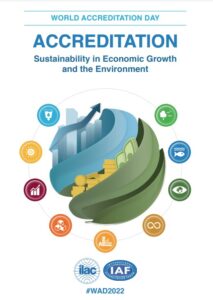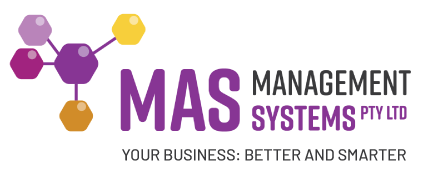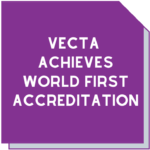Why do we celebrate World Accreditation Day?
 Every week there’s a special day to celebrate or cause to acknowledge. These range from important causes such as Breast and Prostate Cancer Awareness to those a little more left of field like National Sea Monkey Day (it was 15 May if you’re wondering).
Every week there’s a special day to celebrate or cause to acknowledge. These range from important causes such as Breast and Prostate Cancer Awareness to those a little more left of field like National Sea Monkey Day (it was 15 May if you’re wondering).
These days are useful for raising the profile or drawing attention to a particular cause. World Accreditation Day on 9 June is no exception.
Jointly sponsored by the International Laboratory Accreditation Cooperation and the International Accreditation Forum, World Accreditation Day is celebrated on 9 June each year. And like any good awareness day, it’s a global celebration that seeks to help people understand the importance of accreditation.
What is accreditation?
If you google ‘what is accreditation’, you’ll find all kinds of definitions relating to education, health, and aged care. Regardless of the area, the same words keep popping up – competence, assessment, and consistency.
In the case of laboratories, accreditation focuses on third party assessment of an organisation such as a testing or calibration lab, to ensure that it is consistently producing accurate data using relevant standards.
While most people will understand that concept, perhaps adding ‘confidence’ and ‘safety’ would give more clarity.
 Whenever you purchase a product, you’re trusting that someone somewhere checked that it was safe for you to use.
Whenever you purchase a product, you’re trusting that someone somewhere checked that it was safe for you to use.
For example, when you purchase a dummy, you can be confident that someone in a lab made sure it was safe for your baby.
And when your blood test is sent to a lab, you can be sure that the lab carrying out those tests has competent staff who know what to look for.
How does it work?
Many global economies have one or more of their own local accreditation bodies and in Australia, it is NATA. It’s their role to assess individual labs to ensure that they are meeting or exceeding the requirements of local and international standards.
Once a facility has been found to be competent, NATA will come back regularly to check that those standards are being maintained.
Accreditation bodies must also conform to a standard, ISO/IEC 17011 Conformity assessment – General requirements for bodies providing assessment and accreditation of conformity assessment bodies. Peers from accreditation bodies in other parts of the world carry out periodical evaluations (like an assessment) to ensure that these requirements are being adhered to.
Why do it?
It may seem like a lot of trouble to go to but there are so many business benefits for holding accreditation.
By undergoing accreditation, you’re signalling that you have sufficient confidence in your testing, calibration and business processes to have them examined by an independent external body. This in turn will give your customers (and potential customers) confidence in your business. This is particularly the case if you have competitors who haven’t done the same. This makes your accreditation an extremely effective marketing tool.
In addition, laboratory accreditation is often specified by regulatory and government bodies. For that reason, holding accreditation could open new business opportunities. Other industries including chemical, construction and the food sectors routinely request laboratory accreditation for suppliers of their testing or calibration services.
Accreditation is also useful for providing a benchmark. Having a regular assessment by an accreditation body means receiving external feedback on your systems and improvement suggestions. Since most labs tend to operate in isolation from their peers this advice, including that from a technical assessor and subject matter expert, can prove extremely valuable.
The theme for World Accreditation Day in 2022
The United Nations Sustainable Development Goals (SDGs) were developed as a kind of blueprint to achieve a better and more sustainable future for everyone. The goals are:
- GOAL 1: No Poverty
- GOAL 2: Zero Hunger
- GOAL 3: Good Health and Well-being
- GOAL 4: Quality Education
- GOAL 5: Gender Equality
- GOAL 6: Clean Water and Sanitation
- GOAL 7: Affordable and Clean Energy
- GOAL 8: Decent Work and Economic Growth
- GOAL 9: Industry, Innovation and Infrastructure
- GOAL 10: Reduced Inequality
- GOAL 11: Sustainable Cities and Communities
- GOAL 12: Responsible Consumption and Production
- GOAL 13: Climate Action
- GOAL 14: Life Below Water
- GOAL 15: Life on Land
- GOAL 16: Peace and Justice Strong Institutions
- GOAL 17: Partnerships to achieve the Goal
Each year, ILAC and IAF release a theme for World Accreditation Day. This year’s theme is Accreditation – Sustainability in Economic Growth and the Environment. This theme is designed to support the implementation of the goals. The particular focus is on numbers 6 to 9 and 12 to 15.
The heads of both organisations issued a statement about the theme and how their members are working to support it. You can read it on the ILAC website.
The final word
In partnership with our clients, we live and breathe accreditation!
We recognise that World Accreditation Day gives us all an opportunity to pause and consider not just how we work, but why.
What we’re all striving for is a world that is better. One that has safe products, transport, food, water, and workplaces. Unfortunately, this isn’t the current reality but we’re all part of the journey to close that gap. Taking one day out of a year to acknowledge our combined desire, efforts and commitment in working towards this is well worth the time.
And that’s why, if you need support on your accreditation pathway, you should come talk to us.
We have an accreditation heart with a business head so we can steer you in the right direction.
We’d like to say that we also have UNSDG 17 in our sights, creating partnerships with all the businesses we work with to achieve all of the goals.
Call Maree (0411 540 709), read about our services on our website or email info@masmanagementsystems.com.au to set up a confidential discussion.
Remember, you don’t have to do this alone!
Download the article World Accreditation Day 2022





